Cross Cultural Marketing Strategies in China

Are you struggling to effectively market your brand in China? Well, understanding how to navigate the complexities of cross-cultural marketing can be a daunting task.
But fear not, because we’ve done our research and found the solutions that will help your brand thrive in this unique market. In this article, we’ll delve into the importance of cultural sensitivity, choosing the right marketing channels, and provide strategies that have proven successful for brands just like yours.
Cost-Effective Agency
KPI and Results focused. We are the most visible Marketing Agency for China. Not because of huge spending but because of our SMART Strategies. Let us help you with: E-Commerce, Search Engine Optimization, Advertising, Weibo, WeChat, WeChat Store & PR.
Get ready to take your marketing game to new heights in China!
Key Takeaways
- Cross-cultural marketing is essential for success in the Chinese market, as it requires understanding and respecting Chinese culture, values, and consumer behavior.
- Regional differences within China greatly influence consumer behavior and marketing strategies. Tailoring approaches to specific regions is crucial for maximum reach and engagement.
- Cultural sensitivity, including language adaptation and localization, plays a significant role in effective cross-cultural marketing in China. Understanding the concept of “face” (mianzi) is also important for building trust with Chinese consumers.
- Choosing the right marketing channels, such as popular digital platforms like WeChat and Weibo, is crucial for reaching the Chinese audience effectively. However, marketers must also be aware of restrictions imposed by the Chinese government on media content and online activities.
Chinese Culture and Consumer Behaviour Overview
Chinese culture and consumer behavior greatly influence marketing strategies in China. From core values to regional differences, understanding these factors is crucial for success.
Core values, beliefs, and habits that influence Chinese consumers
Understanding the Chinese consumer requires a deep understanding of their core values, beliefs, and habits. Chinese consumers prioritize reputation, group decisions, and social connections when making shopping choices.
They also value getting value for their money. These cultural practices remain important even as socioeconomic trends change.
While increased wealth may impact shopping habits, tradition still plays a significant role. To effectively market in China, it is crucial to understand these unique attributes.
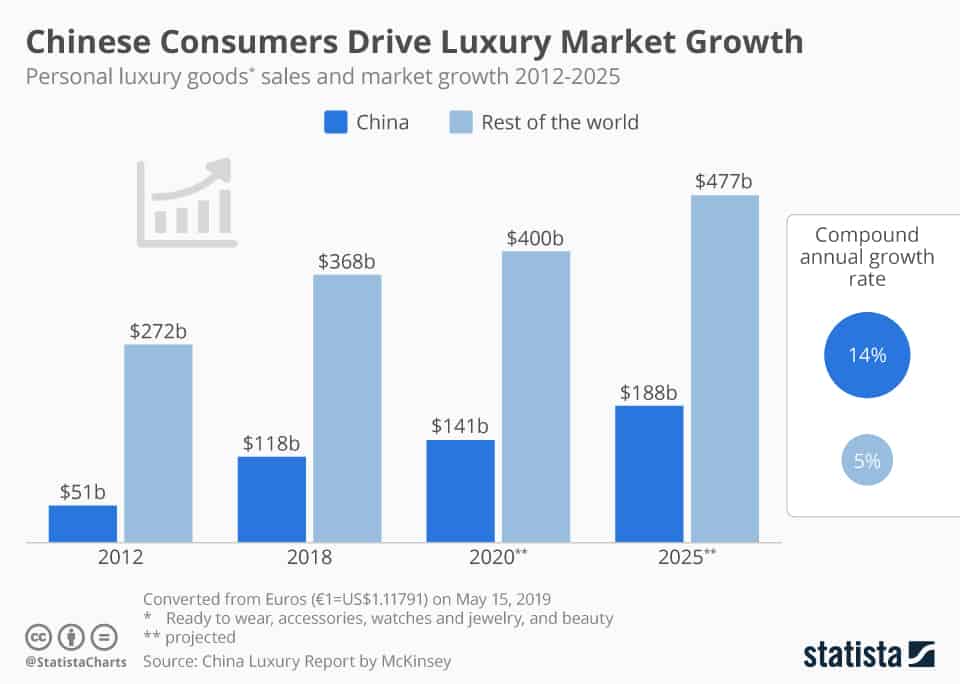
Regional differences within China
In China, consumer behavior and marketing strategies are greatly influenced by regional differences. The preferences of buyers can vary depending on factors such as location, wealth, and age.
For instance, luxury goods are more popular in big cities with higher incomes, while practical items are preferred in smaller towns and rural areas. It is also important to consider the different dialects and cultural nuances in each region, as they affect communication styles.
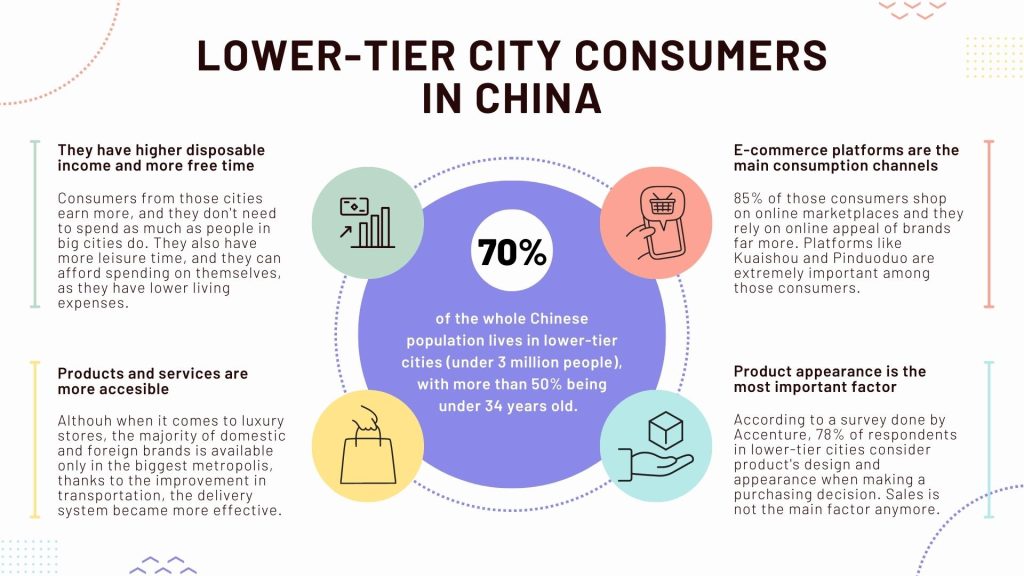
To effectively reach and engage with consumers, marketing campaigns should be localized accordingly. A one-size-fits-all approach will not work in China. Understanding the unique characteristics of different markets within the country will give you a competitive advantage over those who view China as a homogeneous market.
The role of social, economic, and technological factors in shaping consumer behavior
The role that social, economic, and technological factors play in shaping consumer behavior in China is significant, as these factors have a profound impact on how Chinese consumers make their purchasing decisions.
Social connections and group decisions are highly valued in Chinese culture, influencing consumers’ choices and preferences. Reputation is also important; Chinese consumers tend to trust brands with a positive reputation.
Additionally, economic factors such as value for money drive purchasing decisions in China’s increasingly domestically driven consumer market. Technological advancements have further shaped consumer behavior, with technology adoption being widespread among Chinese consumers.
Importance of Cultural Sensitivity in Marketing
Understanding market habits and tastes is essential for successful marketing in China.
The market habits and tastes
To effectively market your product in China, it is crucial to understand the market habits and tastes of Chinese consumers.
They have distinct preferences and behaviors that greatly influence their purchasing decisions. For middle-class consumers, brand awareness is particularly significant, especially for luxury brands. The status also plays a key role in their choices.
Chinese customers tend to be more demanding, so delivering high-quality products and services is essential. Conducting thorough market research and gaining insights into consumer behavior will help tailor your marketing strategies specifically for the Chinese audience.
The concept of ‘face’ (mianzi) in Chinese society
In Chinese society, the concept of ‘face’ (mianzi) holds great importance and has significant implications for marketing. Face, which represents a person’s social self-worth, greatly influences consumer behavior in Chinese culture.
It encompasses concepts like reputation, trust, respect, connections, honor, and authority. When promoting your products or services in China, it is essential to consider how your brand can enhance customers’ sense of face.
By understanding the cultural significance of face and incorporating it into your marketing strategies, you can build trust with Chinese consumers and create stronger customer relationships based on mutual respect.
Choosing the Right Marketing Channels in China
In order to effectively reach the Chinese market, it is essential for businesses to carefully select the right marketing channels. From digital platforms like WeChat and Weibo to influencers and live-streaming, understanding China’s media landscape is crucial.
Overview of the media landscape in China, including restrictions
The media landscape in China is ever-changing and holds significant influence, particularly through social media platforms.
These platforms serve as the primary source of information for Chinese consumers and greatly impact their behavior and preferences.
However, it’s crucial to acknowledge that the Chinese government imposes certain restrictions on media content and online activities. These restrictions are designed to control the flow of information and ensure compliance with local laws and regulations.
For marketers, it’s important to understand these restrictions in order to navigate the Chinese social media platforms’ landscape effectively and implement successful cross-cultural marketing strategies in China. By utilizing popular digital platforms like WeChat, Weibo, or Douyin (TikTok), businesses can connect with their target audience in innovative ways while adhering to local regulations.

Importance of digital platforms (WeChat, Weibo, Douyin, etc.)
Digital platforms such as WeChat, Weibo, and Douyin play a crucial role in China’s digital landscape. These platforms have become an integral part of people’s daily lives, offering a wide range of services and functionalities.
They provide a convenient and efficient way for individuals to communicate, connect, and share information with others. Moreover, these platforms have transformed the way businesses operate, allowing them to reach a vast audience and engage with customers in innovative ways.

From e-commerce to entertainment, digital platforms have revolutionized various industries, creating new opportunities and driving economic growth. In a country with a massive population like China, the importance of these digital platforms cannot be overstated, as they have become indispensable tools for communication, social interaction, and business development.
Role of influencers (KOLs) and live-streaming in marketing
In today’s digital age, KOLs (influencers) and live-streaming play a crucial role in marketing, particularly in China. Social media platforms like WeChat and Weibo have become significant channels for influencer marketing.
Chinese influencers like Lipstick King Li Jiaqi, fast-talking Dandan, and ‘metahuman’ Ayayi have successfully connected with their audience and effectively promoted products.

Moreover, research indicates that live-streaming shopping experiences have a profound influence on Chinese consumers. Platforms like Kuaishou are increasingly popular among influencers who engage with their followers through interactive sessions.
Cross-Cultural Marketing Strategies in China
Incorporating cultural adaptations and localization is essential for successful cross-cultural marketing campaigns in China.
Differences between Chinese and foreign cultures: key points to consider
Understanding the key differences between Chinese and foreign cultures is crucial for developing effective cross-cultural marketing strategies in China.
The Chinese culture places emphasis on maintaining hierarchies, mutual respect, and avoiding conflict, which greatly influences consumer behavior. In contrast, Western cultures tend to value individualism and assertiveness.
To successfully market in China, it’s important to adapt your approach by focusing on building relationships, demonstrating respect for authority and tradition, and modestly highlighting the benefits of your product or service.
By recognizing these cultural nuances and tailoring your marketing efforts accordingly, you can effectively connect with Chinese consumers and gain a competitive edge in the market.
Case studies of successful cross-cultural marketing campaigns
These examples illustrate the importance of cultural sensitivity and understanding in developing effective marketing strategies. Here are some notable cases:
- McDonald’s: McDonald’s successfully adapted its menu to cater to Chinese tastes and preferences. They introduced localized items such as the McSpicy Chicken Burger and Rice Porridge, which appealed to the Chinese market. McDonald’s also embraced digital marketing platforms like WeChat and used creative promotions to engage with their target audience.
- Coca-Cola: Coca-Cola launched a successful marketing campaign during Chinese New Year, featuring limited edition bottles with traditional Chinese symbols and blessings. This attracted consumers and demonstrated respect for Chinese culture. They also collaborated with popular Chinese celebrities to promote their products, strengthening their brand in the market.
- Airbnb: Airbnb entered the Chinese market by addressing trust and safety concerns and collaborating with local partners. They offered tailored experiences for Chinese travelers and gained credibility among consumers.
- Nike: Nike recently launched a campaign in China featuring basketball player Yao Ming, a highly respected figure in the country. This move allowed Nike to establish credibility and loyalty among Chinese consumers by associating their brand with a beloved sports personality. To further engage with younger audiences and increase brand awareness, Nike utilized popular social media platforms such as Weibo and Douyin (also known as TikTok).

Strategies for cross-cultural marketing in China, from product adaptation to promotion
To successfully tap into this market, it is crucial to adapt your products and promotions to align with Chinese culture. Here are some strategies to consider:
Understand the cultural customs and way of life
Gain deep insights into Chinese culture, values, beliefs, and habits that influence consumer behavior. Adapt your product offerings and marketing messages accordingly.
Address geographical cultural differences
China is a diverse country with regional differences in consumer preferences. Consider these variations when developing marketing strategies to effectively reach different target markets within China.
Cultural adaptation
Tailor your products and services to cater to the unique needs, tastes, and preferences of Chinese consumers. This may involve adjusting packaging, flavors, sizes, or even introducing entirely new products customized for the Chinese market.
Utilize digital platforms
Digital platforms such as WeChat, Weibo, Douyin (TikTok), are immensely popular in China. Use these platforms for targeted advertising and engage with consumers through creative content and interactive campaigns.

Collaborate with influencers (KOLs)
Influencer marketing plays a significant role in China’s consumer landscape. Partner with key opinion leaders (KOLs) who have a strong following on social media platforms to promote your products or services authentically.
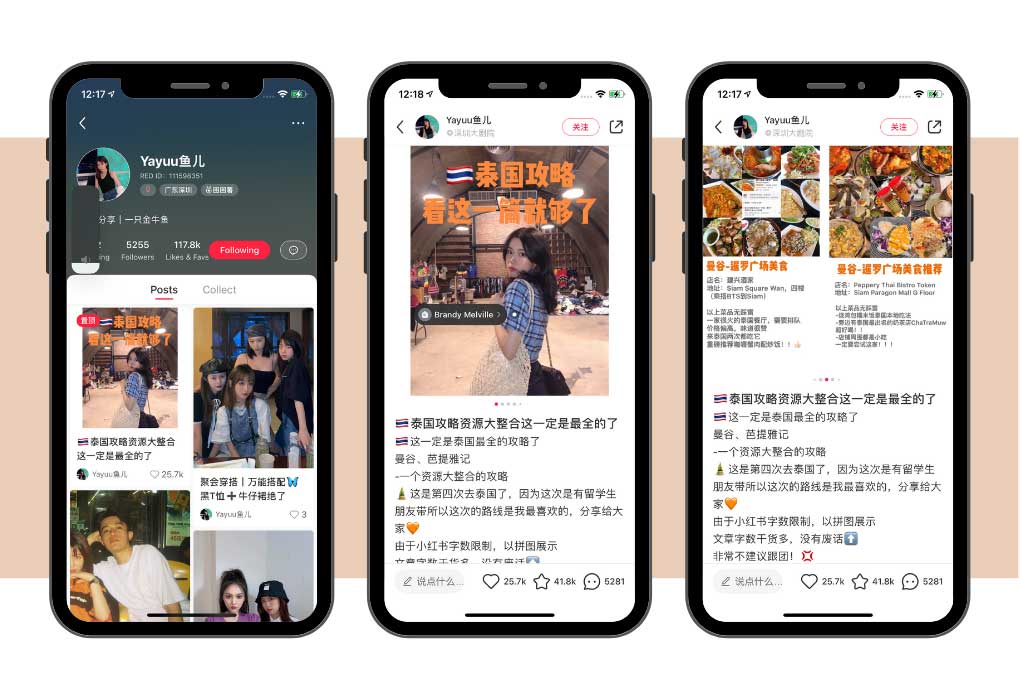
Leverage live-streaming
Live-streaming has become a powerful marketing tool in China. Engage with audiences through live broadcasts where you can showcase product features, answer questions in real-time, and provide exclusive offers.

Incorporate Chinese language and cultural nuances
Pay attention to language considerations such as dialects, slang, colloquialism when creating marketing materials or digital content in China to connect with consumers more effectively.
Benefits and Challenges of Cultural Sensitivity in Marketing
Cultural sensitivity in marketing offers numerous benefits, including building strong customer relationships, increasing brand loyalty, and gaining a deeper understanding of the target audience.
However, it also presents challenges such as potential pitfalls and difficulties in navigating a different cultural context.
Building strong customer relationships
Building strong customer relationships in China requires cultural sensitivity. Businesses that understand and respect Chinese culture can develop trust and rapport with their target audience, leading to increased brand loyalty and a competitive advantage in the market.
Cultural awareness allows marketers to create messaging that resonates with Chinese consumers, resulting in higher quality and more targeted marketing efforts.
Embracing workplace diversity and cross-cultural communication helps businesses gain a deeper understanding of customer needs and preferences, establishing trusting relationships and allowing marketers to tap into local market insights for more effective strategies.
Increasing brand loyalty and enhancing market competitiveness
Cultural sensitivity in marketing offers several advantages, including the ability to boost brand loyalty and gain a competitive edge in the market.
By understanding the values, beliefs, and behaviors that influence Chinese consumers, marketers can customize their strategies to better connect with their target audience. This leads to more relevant and impactful messaging, resulting in stronger customer relationships.
Moreover, cultural sensitivity allows marketers to stand out from competitors by demonstrating an understanding and appreciation for local nuances.
By adapting products, promotions, and communication channels to fit the Chinese market, brands can position themselves as being more attuned to the needs and preferences of their customers.
Gaining a deeper understanding of the target audience
To successfully market in China, it is important to have a deep understanding of the target audience. This involves understanding the cultural nuances and consumer preferences in order to tailor marketing strategies to meet the specific needs and wants of Chinese consumers.
By investing in market research and gaining customer insights, businesses can create more targeted and relevant content, as well as develop products that align with local market demands. This not only helps in building strong connections with the target audience but also enhances brand loyalty.
The cultural context is essential for developing effective marketing campaigns that resonate with Chinese consumers, leading to greater success in the competitive Chinese market.
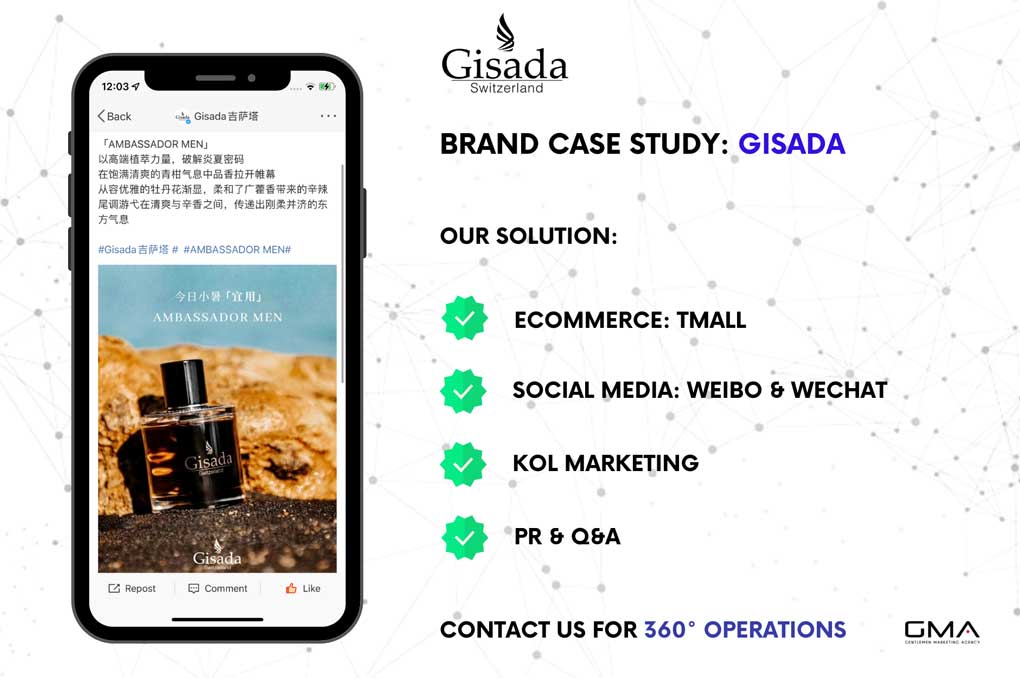
Potential pitfalls and challenges of marketing in a different cultural context
Marketing in a different cultural context presents challenges due to potential misunderstandings and miscommunication. Differences in cultural values and norms across countries result in variations in consumer behavior, preferences, and expectations.
Marketers must have a deep understanding of the target culture to avoid creating ineffective or offensive messages. When entering new markets, cultural adaptation is crucial as product features, pricing strategies, and promotional tactics may need adjustment to suit local preferences.
Failure to adapt can lead to low market share and missed opportunities. Marketers should invest time in researching and understanding the cultural nuances of their target audience to develop successful cross-cultural marketing strategies.
Emerging trends, technologies, and opportunities for foreign businesses in China
Staying updated on emerging trends and technologies in China is crucial for all foreign companies and businesses, as it presents great opportunities. China’s consumers are early adopters of technology, making it an attractive market for innovation and growth.
With a booming middle class, older consumers seeking convenience and quality, and digital natives driving digital consumption habits, there is tremendous potential for businesses to tap into this vast consumer base.
The sharing economy is also rapidly expanding in China, creating new avenues for collaboration and customer engagement. To capitalize on these opportunities, implementing effective digital marketing strategies tailored to Chinese consumer preferences is key.

We can help you to successfully tap into this market! Contact us!
Successful cross-cultural marketing in China requires a deep understanding of Chinese culture, consumer behavior, and the importance of cultural sensitivity.
By adapting marketing strategies to cater to local preferences and utilizing the right channels, foreign brands can effectively connect with Chinese consumers and build strong customer relationships.
However, it’s crucial for marketers to continuously learn and adapt to evolving trends and technologies in order to stay competitive in this dynamic market.

Gentlemen Marketing Agency offers many digital marketing and e-commerce solutions, such as web design, e-commerce and social media marketing strategies, localization, market research, KOL marketing, and more.
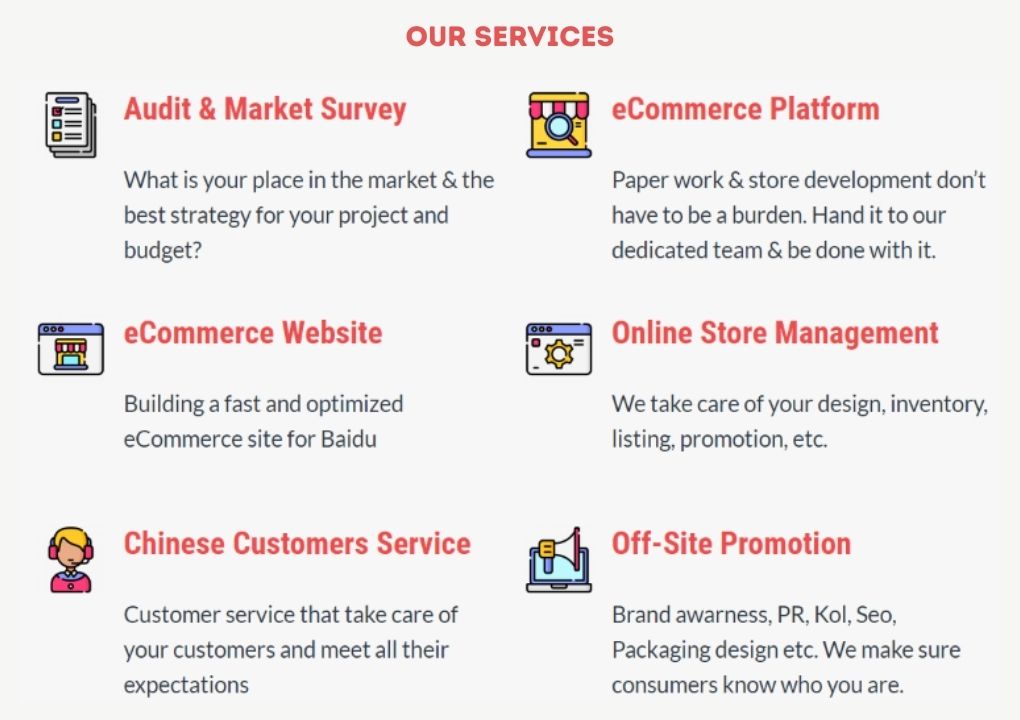
Don’t hesitate to leave us a comment or contact us, so that we can schedule a free consultation with one of our experts, that will learn about your brand and present you the best solutions for your China market strategy.






